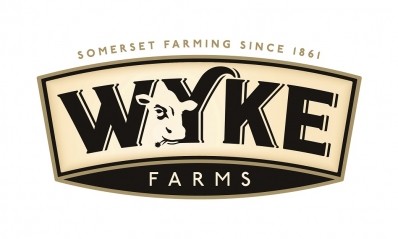Chilled Food Association and vets battle Brexit red tape

A CFA survey of chilled and frozen composite products estimated that 30,000 Export Health Certificates (EHCs) would be required where none were before.
According to Animal and Plant Health (APHA) data provided to the industry, there was a 126-fold increase in the total number of EHCs for EU export issued in January/February 2021 compared with the same period last year. The number rose from 491 in that period in 2020 to 61,802 in 2021. Before Brexit, GB was part of the EU trading bloc, so such validation was not needed.
The rules were to have been applied to equivalent products exported between GB and Northern Ireland, but implementation has been delayed until 1 October at the earliest. Composite products are being phased in last, so further impacts have yet to be felt.
'Detailed supplementary information'
"Each composite product EHC needs to be supported by detailed supplementary information for each animal origin ingredient including the approved source, processing details and dates of production, by batch being exported, and to be signed by an OV [official veterinarian]," the CFA stated in its latest newsletter.
"This represents a huge new administrative burden – introducing new costs and delays in what was a highly efficient system facilitating rapid flow of chilled short shelf life complex foods made to order on the day of despatch. It also raises concerns over whether there are sufficient number of OVs to sign the certificates.
"CFA has been working with the British Veterinary Association (BVA), the professional body for OVs, to identify such issues and find solutions."
The CFA's comments come after the British Meat Processors Association (BMPA) claimed the added bureaucracy and costs of Brexit could reduce UK meat exporters trade by up to 50%. And despite signs of a recovery in February food export sales, some commentators remain cautious about celebrating too soon.
Another increase in paperwork
The chilled food industry faces another increase in the volume of mandatory paperwork from 21 April as the new EU Animal Health Law (2016/429), published in March 2016 when the UK was still an EU member state, takes effect. This is set to make EHCs necessary for an estimated one third more chilled composite foods, according to the CFA.
"Even those few composite chilled foods which remain exempt will require Private Attestations running to several pages of detailed information for them to be exportable to the EU, and at an unspecified date post 1 October, to Northern Ireland. The question is whether all this new administrative cost can be borne, given existing profit margins."
The CFA has set up an EHCs Associations Group for food trade associations and the BVA, as a forum to engage with Government veterinary officials, identify and resolve problems.
Checklist to help food businesses
The Association has also developed a checklist with the BVA to help food businesses ensure OVs have appropriate professional status, the required specific training and adequate insurance cover for their EHC work. Links are included to supporting information on Royal College of Veterinary Surgeons, APHA and Improve-OV requirements.
The CFA is helping DEFRA develop its Digital Assistance Scheme (DAS) to facilitate the continued supply of food to Northern Ireland from 1 October through the digitisation of paperwork and its submission to existing export systems.
“Leaving the EU has had a profound effect on the day to day working lives of vets, the free movement of our workforce, and of course on the exportation of 'just-in-time' short shelf-life food," said CFA director Karin Goodburn.
"When the UK from 1 October implements its own controls on imported foods we will open another chapter, with uncertainty about its impact on the flow of foods and ingredients from the Continent and Ireland at a time when the UK crops season has ended and we are most dependent on imports."
Wyke Farms
Commenting on the first 100 days since the end of the Brexit transition period on Radio 4's Farming Today on 15 April, Richard Clothier, managing director of cheese maker Wyke Farms, which boasts a lucrative export business, said: "Initially we were quite pleased that we have not got any financial tariffs, which would have been devastating for the industry.
"That elation has been tempered a little bit by the fact that the non-tariff barriers are now significant and we're all seeing quite a lot of cost and disruption and loss of flexibility due to these non-tariff barriers and the systems and processes for now crossing borders."
Asked for examples, Clothier said: "The fact that everything now has to be licensed and signed off by the vets. The paperwork's quite onerous. We've created another three jobs to cope with the paperwork, so there's added cost for our own business, but also increased veterinary costs as well." Vets had to be physically present to hand stamp forms in some cases, he said.
Wyke Farms - not a composite product manufacturer - had to reconfigure operations to dispatch full container loads for export, because sending only a few pallets was no longer economically viable, he said. Export volumes for the business were up, but the costs and work of export had also increased, so the company's trade with the EU was about level with where it was before Brexit - and it had prepared well for the transition, he added.

















